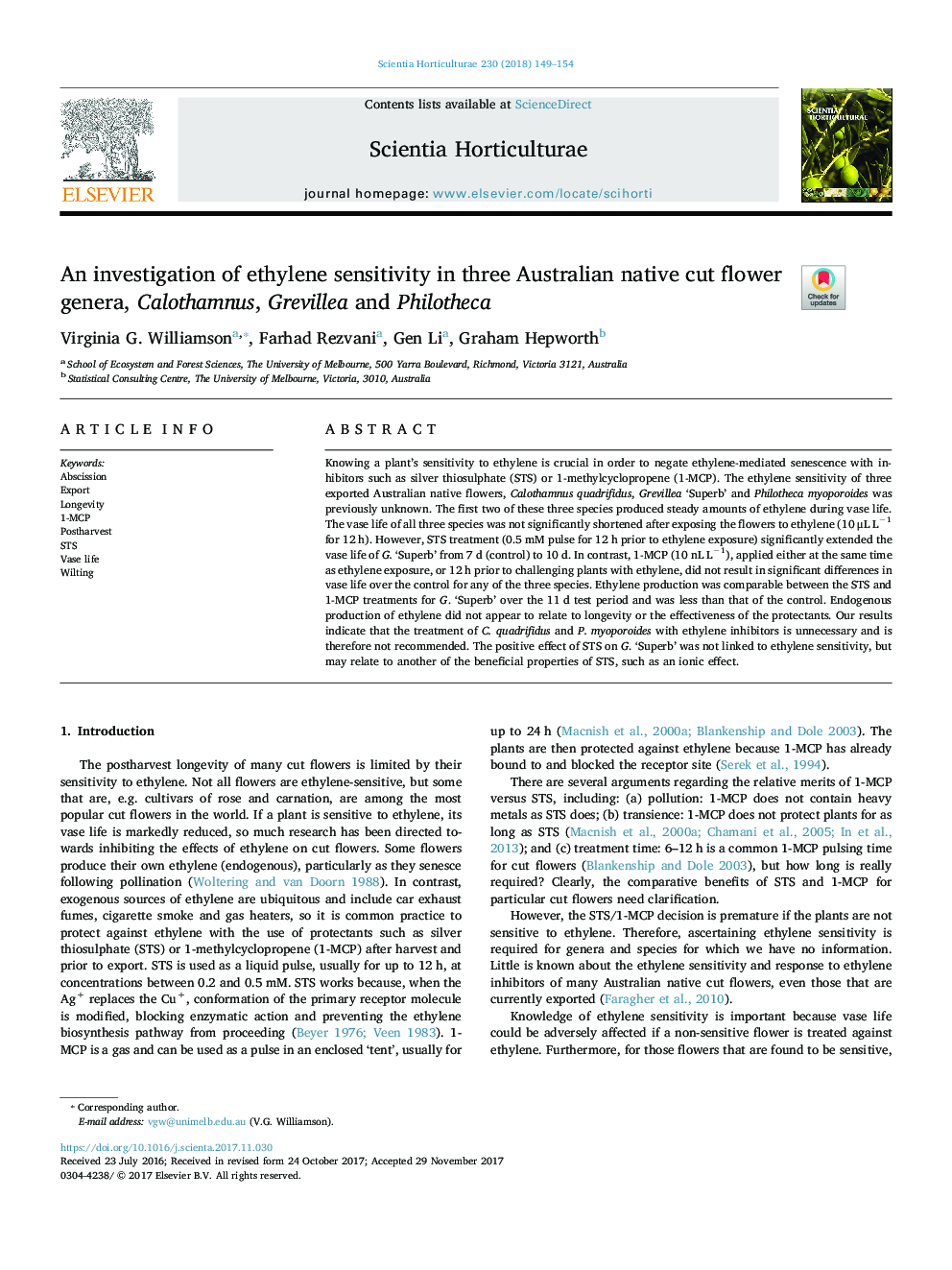| Article ID | Journal | Published Year | Pages | File Type |
|---|---|---|---|---|
| 8893064 | Scientia Horticulturae | 2018 | 6 Pages |
Abstract
Knowing a plant's sensitivity to ethylene is crucial in order to negate ethylene-mediated senescence with inhibitors such as silver thiosulphate (STS) or 1-methylcyclopropene (1-MCP). The ethylene sensitivity of three exported Australian native flowers, Calothamnus quadrifidus, Grevillea 'Superb' and Philotheca myoporoides was previously unknown. The first two of these three species produced steady amounts of ethylene during vase life. The vase life of all three species was not significantly shortened after exposing the flowers to ethylene (10 μL Lâ1 for 12 h). However, STS treatment (0.5 mM pulse for 12 h prior to ethylene exposure) significantly extended the vase life of G. 'Superb' from 7 d (control) to 10 d. In contrast, 1-MCP (10 nL Lâ1), applied either at the same time as ethylene exposure, or 12 h prior to challenging plants with ethylene, did not result in significant differences in vase life over the control for any of the three species. Ethylene production was comparable between the STS and 1-MCP treatments for G. 'Superb' over the 11 d test period and was less than that of the control. Endogenous production of ethylene did not appear to relate to longevity or the effectiveness of the protectants. Our results indicate that the treatment of C. quadrifidus and P. myoporoides with ethylene inhibitors is unnecessary and is therefore not recommended. The positive effect of STS on G. 'Superb' was not linked to ethylene sensitivity, but may relate to another of the beneficial properties of STS, such as an ionic effect.
Related Topics
Life Sciences
Agricultural and Biological Sciences
Horticulture
Authors
Virginia G. Williamson, Farhad Rezvani, Gen Li, Graham Hepworth,
